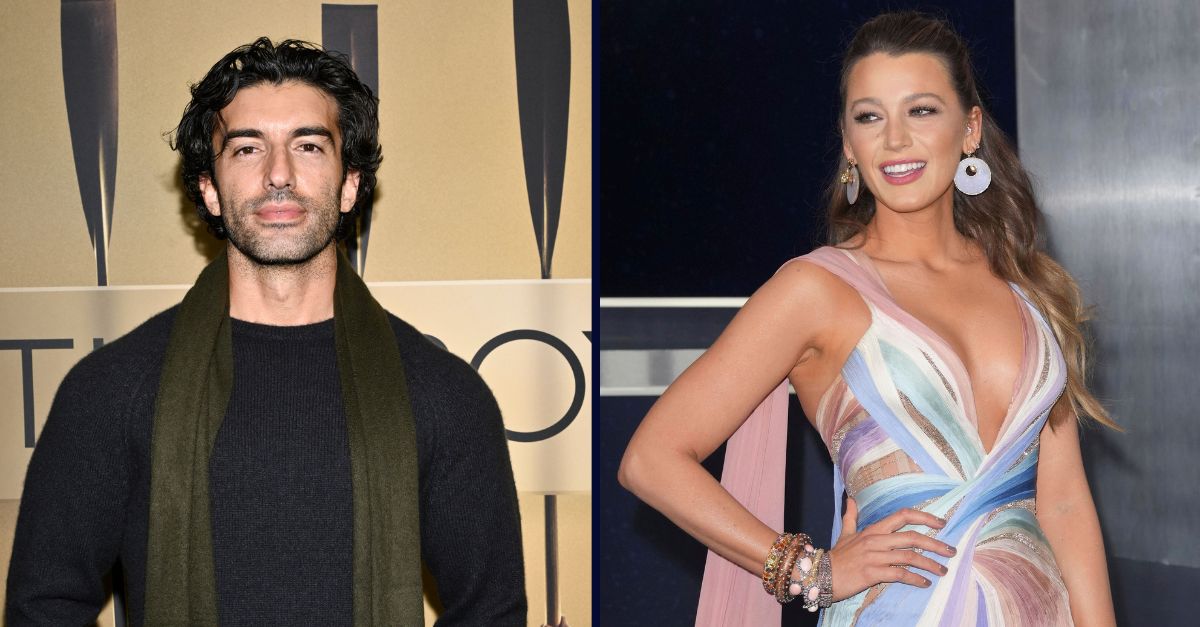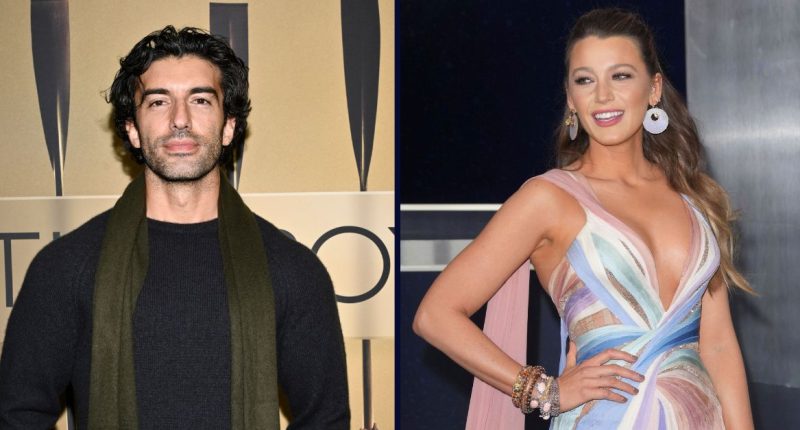
Left: Justin Baldoni attends a special screening of “The Boys in the Boat” at the Museum of Modern Art on Wednesday, Dec. 13, 2023, in New York (Photo by Evan Agostini/Invision/AP). Right: File Photo by: zz/John Nacion/STAR MAX/IPx 2022 2/28/22 Blake Lively at the Netflix premiere of “The Adam Project” held on February 28, 2022 at Alice Tully Hall at Lincoln Center in New York City (NYC).
In the year 2025, is any litigation in which one party claims they have been economically damaged complete without a claim of how they have been negatively affected by or through social media? In the 2000s, when our society stood at the precipice of the very beginnings of platforms such as Facebook, Twitter, and others, no one could have foreseen the critical role social media would play in the professional profiles and lives of individuals, companies, and brands. Now, with the age of influencers and people — both celebrities and non-celebrities — being able to create careers and livelihoods solely through social media, many plaintiffs in lawsuits are now starting to pay attention as to how they can claim they were damaged in terms of their social media presence by their opposing party.
Most recently, we’ve seen this come to a head in the legal dispute between actors Blake Lively and Justin Baldoni. Last month, Lively filed a complaint in California against Baldoni, her co-star and director of the film “It Ends With Us,” claiming he sexually harassed her and orchestrated a smear campaign against her across social media platforms such as TikTok, X (formerly known as Twitter), and Reddit. In the suit, Lively claims Baldoni, who purchased the rights to adapt the wildly popular 2016 book — which is about an abusive relationship — into a film through his production studio Wayfarer Studios, and others engaged in conduct such as entering into Lively’s trailer uninvited while she was breastfeeding her young child, showing Lively “pornographic” imagery and videos, and failing to retain an intimacy coordinator for sexually-related scenes.
On the same day Lively’s complaint was filed, The New York Times reported on the second half of Lively’s substantial claim against Baldoni, particularly that he and his public relations team orchestrated a smear campaign through social media to turn the public against Lively. To the surprise of many, The New York Times reported on Lively’s legal — and unadjudicated — claims as fact, referring to the alleged campaign as a “largely undetectable smear campaign in the digital era.”
In response, Baldoni himself filed a defamation claim against The New York Times, and earlier this month, his attorney warned Baldoni intends to sue Lively “into oblivion.” Baldoni made good on his promise, as on Jan. 16, 2025 he filed a $400 million lawsuit against Blake Lively and her husband, Ryan Reynolds, accusing them of civil extortion, defamation, and invasion of privacy.
In his suit, Baldoni and his team have claimed they in no way engaged in sexual harassment or improper conduct against Lively, and that any negative coverage she has received via social media was derived from her own actions. In his lawsuit, Baldoni released text messages between himself and Lively during production of the film in which Lively allegedly invited Baldoni to come into her trailer while pumping breast milk for her son, and Lively confirming she did not need to meet the intimacy coordinator Baldoni had hired, which presents a vastly different story from Lively’s account.
In regard to the sexual harassment portion of the lawsuit, it is clear both sides will present considerable communications and claims during the discovery process, as the case plays out. In the meantime, Lively’s allegations regarding Baldoni’s campaign to smear her via social media during the film’s promotion mark the latest in a slew of cases in which a plaintiff’s damages claims relies heavily upon the change in their social media presence.
The growing trend of social media damages claims
While Lively’s recent lawsuit has gotten arguably more press than other similar claims, it is only the most recent in a mounting trend of individuals claiming, either through lawsuits or otherwise, that part of the way they were damaged was by or through social media.
Notably, in 2022, after Johnny Depp scored a victory against his former wife Amber Heard in his defamation suit against her, Heard’s attorney stated their belief was that the social media presence at the time — which was heavily against Heard — played a factor in the unfavorable decision against her. When pressed further about the slew of videos in which influencers, trial followers, and others expressed their discontentment against Heard and whether she believed jurors saw such content, her attorney, Elaine Bredehoft, stated: “How can you not? They went home every night. They have families. The families are on social media. We had a 10-day break in the middle because of the judicial conference. There’s no way they couldn’t have been influenced by it.”
Bredehoft highlighted some of the brutal feedback Heard was receiving at the time, further stating: “These people were giving her death threats. They threatened to microwave her baby. This is the kind of social media she was getting.” Heard was so convinced of the critical role social media played in the trial’s outcome that she appealed Depp’s win promptly afterward, before later agreeing to pay Depp $1 million and let the verdict stand.
Meanwhile, in the same year as the Depp trial, in 2022, television reality star Bethenny Frankel actually took to TikTok directly, suing the platform and claiming it used her image to sell counterfeit products.
Years prior, in 2019, music superstar Ariana Grande sued the massive retailer Forever 21, claiming it used her likeness by hiring a look-alike model for a social media campaign, thereby leading viewers to believe Grande herself was endorsing their products. While the lawsuits may vary in their facts and claims, it is clear many people, particularly those with a large public profile, have become aware of the value of social media and the effects that can come when they believe they have been adversely impacted by it.
The impact of negative social media presence
When many social media platforms were just emerging and starting to be used by the public, many remember the time when establishing an online presence was seen as risky — and sometimes even nefarious. I specifically remember when creating my first Facebook profile during high school that a family member warned of the dangers that can come from posting your photo online. Now fast forward years later, the opposite seems to be true: anyone without an identity on the internet is disfavored, particularly in a professional context. Nowadays, it seems that having an extensive LinkedIn profile or even a few Google searches yielding results is not enough; many recruiters and professionals stress the importance of utilizing social media to climb the corporate ladder, no matter what industry you may be in.
For business owners, having social media is key to attract potential clientele and drum up interest. At the time of the promotion of “It Ends With Us,” Lively had used the opportunity to promote her soda and alcohol drink companies Betty Buzz and Betty Booze, and her newly-launched hair care line, Blake Brown, which resulted in severe backlash online. Specifically, online users questioned the timing of promoting a line of alcohol — given the role alcoholism can play in instances of domestic violence, a key theme of the film — and the choice to name one of the cocktails after an abusive character in the film, such as the drink, Ryle You Wait.
In her complaint, Lively claims damages to her businesses as a result of the alleged social media smear campaign, with the complaint stating: “The retaliation campaign against Ms. Lively has damaged her companies as well. The long-planned launch of her haircare line, Blake Brown … was caught up in the crossfires of the negative environment against Ms. Lively.” The complaint alleged sales of Lively’s beauty line decreased by 56-78% and that “Around the same time, the social media accounts for Ms. Lively’s brands — including Betty Buzz and Betty Booze — were flooded by hateful comments, which began to echo through other social and traditional media outlets.”
From even the facial language in her initial complaint, it is clear that Lively as a business owner wanted to make a nexus between the negativity she received on social media to declining sales and the negative impact on her brands. For his part, Baldoni claims that any adverse effects Lively cites to were caused directly by her own actions and word choices used during the promotion tour of the film.
Even if you are not a business owner, but just a professional individual, establishing yourself online can only lead to more opportunities and visibility in a young person’s growing working life. Now in 2025, influencers, online personalities, and professionals are able to build a career purely just by being themselves, therefore making it critical for everyone to establish a social media presence and a reputation. Many human resources professionals and business experts advise as much, emphasizing that building a brand on social media is like having a round-the-clock sales team, and that the more a brand is established online, the more likely it is to acquire new customers who stumble upon it.
Lively claims that this overall presence online, which reflects on her not just as an individual but as a celebrity and commodity, has been negatively impacted, with her complaint stating: “Ms. Lively has been precluded from … having the ability to engage further with her businesses, fans, and social media followers without immediately triggering an onslaught of hateful comments. Instead, Ms. Lively and her family have been forced to contend with a wide-reaching negative media campaign.” While the Lively-Baldoni litigation is only in its infancy stages, it is likely that both parties will set forward claims as to how their online profiles and reputations have suffered harm as the result of each respective opposing party.
Finally, one of the many other benefits of having a social media presence is to be able to compete healthily with other brands and professionals in the same industry and set yourself apart from others. At this point, both Lively and Baldoni claim they have suffered drawbacks from social media, thereby making it harder to distinguish themselves in a positive light in their industry.
The benefits of growing a social media presence in a professional and business capacity have now become endless, therefore increasing the amount of legal parties who claim damages in a lawsuit pertaining to their social media accounts. In the case of Lively v. Baldoni, the public is sure to see only more claims from each side as to how they have been impacted within this space, as the lawsuits only further mount.
What’s next
After filing her initial complaint with the California Civil Rights Department, Lively formalized that claim into a lawsuit, through a complaint against Baldoni and others in the Southern District of New York, with essentially the same claims, but this time in a federal litigation. For his part, Baldoni sued The New York Times, as well as Lively herself, claiming in his complaint that the backlash Lively claims she suffered on social media was due to her own conduct, stating: “Lively’s disastrous marketing efforts and tone-deaf press interviews and appearances backfired and led to widespread criticism of Lively’s promotional approach to the Film’s highly sensitive focus on domestic violence.”
Since claiming damages by way of social media is a large part of Lively and Baldoni’s claims, it is apparent that the public will be sure to see more text messages, communications, and overall evidence offered by both parties as to how they were negatively impacted online by the other.
While the name of the film that brought all of this on is titled “It Ends With Us,” it is clear this legal battle is truly just beginning.






